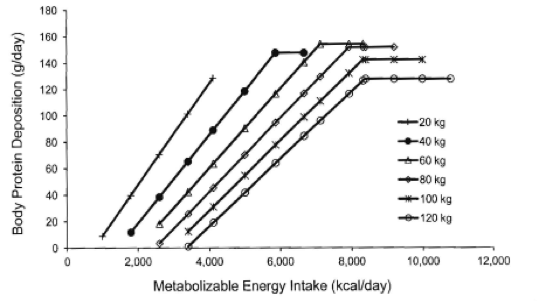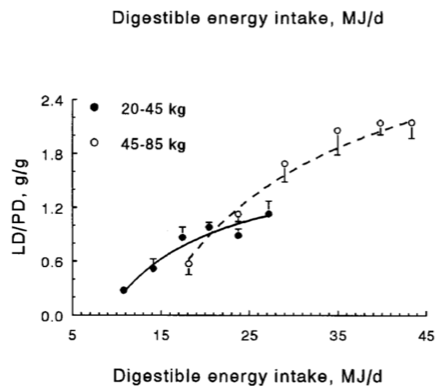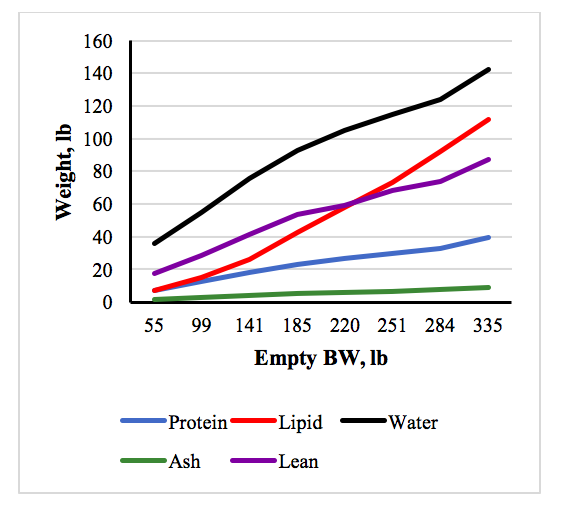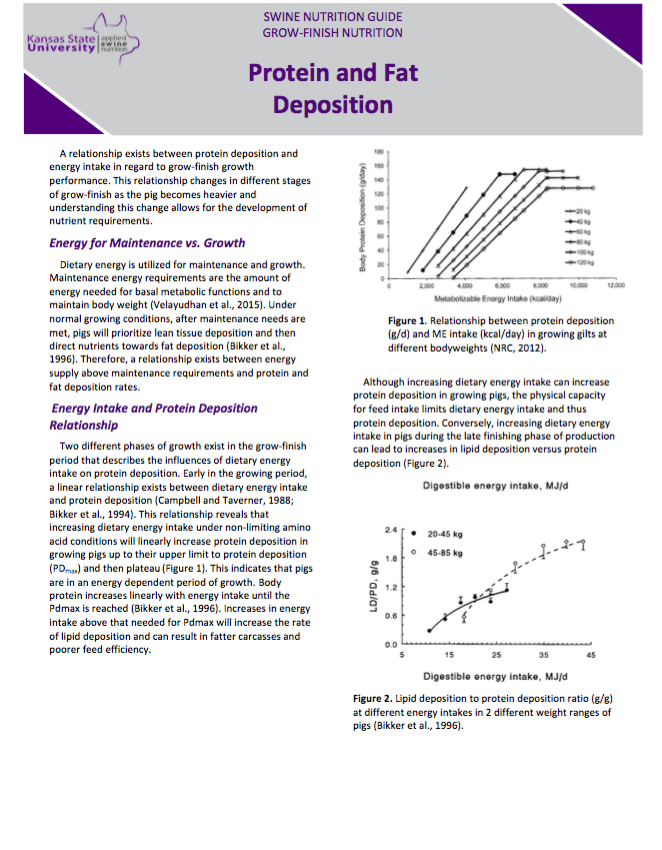Energy Intake and Protein Deposition Relationship
Two different phases of growth exist in the grow-finish period that describes the influences of dietary energy intake on protein deposition. Early in the growing period, a linear relationship exists between dietary energy intake and protein deposition (Campbell and Taverner, 1988; Bikker et al., 1994). This relationship reveals that increasing dietary energy intake under non-limiting amino acid conditions will linearly increase protein deposition in growing pigs up to their upper limit to protein deposition (PDmax) and then plateau (Figure 1). This indicates that pigs are in an energy dependent period of growth. Body protein increases linearly with energy intake until the Pdmax is reached (Bikker et al., 1996). Increases in energy intake above that needed for Pdmax will increase the rate of lipid deposition and can result in fatter carcasses and poorer feed efficiency.

Figure 1. Relationship between protein deposition (g/d) and ME intake (kcal/day) in growing gilts at different bodyweights (NRC, 2012).
Although increasing dietary energy intake can increase protein deposition in growing pigs, the physical capacity for feed intake limits dietary energy intake and thus protein deposition. Conversely, increasing dietary energy intake in pigs during the late finishing phase of production can lead to increases in lipid deposition versus protein deposition (Figure 2).

Figure 2. Lipid deposition to protein deposition ratio (g/g) at different energy intakes in 2 different weight ranges of pigs (Bikker et al., 1996).
This observation can be explained in the changes in body composition as a pig ages. The rate of lipid accretion rapidly increases as pigs enter the late finishing phase of production while lean tissue accretion rates stay relatively constant (Figure 3).

Figure 3. Changes in chemical body composition with increasing body weight (Adapted from Wagner et al., 1999).
This phase of growth is considered the protein dependent phase because energy intake no longer limits protein deposition.
Limiting energy intake in early phases of the grow-finish period can negatively affect protein deposition and growth, but overfeeding energy in later periods can lead to increases in lipid accretion. Understanding this helps aid in determining the number of dietary phases used in the nutritional program, the weight ranges of these dietary phases, and nutrient requirements in an effort to maximize protein deposition and optimize economic success.
